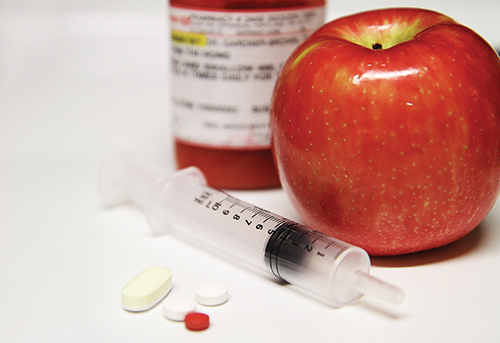
As students, we have the luxury of having access to health care. Because of that privilege, we need to make an effort to be proactive about our health instead of taking the road that continues to drive up costs: defensive health care.
“Preventative medicine” is a term often thrown around in the political sphere in reference to rising health care costs. The idea? Going to the doctor while you still feel healthy, say for yearly check-ups, allows for early detection and treatment should an unforeseen problem show up during testing.
The benefit to that is not only the opportunity to catch an illness early and therefore have a greater chance of success in treating it, but also that the costs associated with preventative health care are significantly lower than the costs of treating severe illnesses. A blood test, for instance, is cheaper, faster and less painful than the dialysis that may be necessary as a result of not detecting kidney disease soon enough.
It’s also believed that this proactive approach to health care, if practiced widely enough, could drive down health care costs in a system that is primarily run on defensive measures. Instead of going to the doctor to ensure that we are indeed healthy, we go to the doctor when something is already wrong.
I’m vocal about my frustration with the current health care system and, in an effort to contribute to even the smallest change, a few years ago I started scheduling yearly medical exams. Indeed, this always depends on whether I have medical insurance, but as a student I’ve found there is no excuse. Each time I go I ask for a blood test that screens for sexually transmitted diseases and HIV, and provides standard information such as my iron levels, just to be thorough.
A few weeks ago I called Portland State’s Center for Student Health and Counseling to make an appointment. I was asked over the phone what symptoms I was experiencing, to which I replied, “None.” There was silence on the other end of the telephone, and I explained that I was just getting a check-up because I do it every year. The person on the other end seemed surprised.
Upon arriving for my appointment, a similar situation unfolded. I was asked again what symptoms I was having, this time by a nurse. And when I told her I had no symptoms, she looked at me skeptically. I explained that I was not trying to obscure the truth: I’ve never experienced symptoms and I simply have these tests done once a year to assure myself that I am, in fact, as healthy as I feel. She said she was genuinely surprised. “If everyone did that, we would all be so much better off,” she said.
I don’t particularly like doctor’s offices—like most other people, I’m sure—but I much prefer them to hospitals. Scheduling a 30-minute appointment to find out that everything is OK is far preferable to waiting in a room while feeling ill, to then be poked and prodded for tests that reveal what could have been a preventable problem.
Of course, this isn’t always possible. There are cases when even the most diligent individuals, the ones who get yearly exams and are conscious of their wellness, are diagnosed with something terrible that no one ever saw coming. And of course there are others who never go to the doctor yet never get sick.
I’m not sure what impact it would have on the health care industry if each person went for a yearly check-up to monitor their health and ensure they were treating any conditions that they could. What I am sure of is that the health care situation in this country is dire.
As PSU students we have the luxury of comprehensive health insurance, something many in this country do not have. We have the ability to find out whether we are healthy. Though a small effort, it’s possible that a change in consciousness leading to being proactive about our health could help us escape from the downward spiral that is the current defensive health care system.
Only going to the doctor when a problem becomes serious is a component of a situation that continues to drive up costs, limit access to health care and prohibit many Americans from staying healthy. Having access to health care shouldn’t be taken for granted, and knowing that I am indeed healthy feels good.

